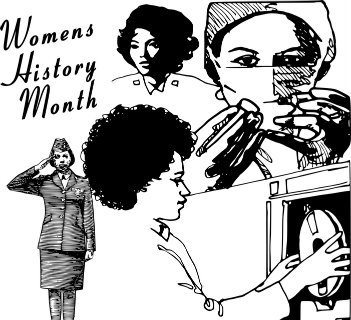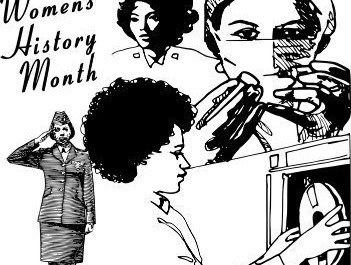Why Is March Women’s Month?
Women’s History Month is an official national celebration, honoring the struggles, achievements and leadership of women. While some people believe events leading to the designation of March as Women’s History Month occurred very recently, the beginning of celebrating and recognizing women actually dates back to more than a century ago.
Tracing Back The History Of March Women’s Month
On March 8, 1857, according to the United States Census Bureau, women working in factories in New York City  staged a protest, complaining of working conditions in the factories where women worked in the textile and garment industries. This was the first recorded incident of an organized protest over the way women were treated in the workplace.
staged a protest, complaining of working conditions in the factories where women worked in the textile and garment industries. This was the first recorded incident of an organized protest over the way women were treated in the workplace.
WomenAid International indicates that women organized the strike to protest low wages, inhumane working conditions, low pay and long working hours. An interesting fact included in reasons for the strike is that the women also used this platform to protest the fact that women did not have the right to vote.
It took several more decades for women to receive any official recognition honoring women. In 1908, another strike took place in New York, when thousands of women marched for economic rights through lower Manhattan to Union Square.
The first Women’s Day subsequently occurred on February 28, 1909 after members of the Socialist Party organized the national celebration of women. In spite of that one day recognition, women still continued to struggle for equal rights, equal pay and better working conditions.
Women’s History Week Initiated
The National Women’s History Project describes the origins of the 1978 initiation of Women’s History Week by first explaining the fact that “As recently as the 1970’s, women’s history was virtually an unknown topic in the K-12 curriculum or in general public consciousness.” To address this situation, the “Education Task Force of the Sonoma County (California) Commission on the Status of Women” initiated a week-long Women’s History Week celebration for the week of March 8, 1978, to coincide with the March 8 International Women’s Day celebration. Schoolchildren in Sonoma County celebrated with special programs while entrants submitted hundreds of essays to the “Real Women” essay contest.
When women participating in a conference with the Women’s History Institute in 1979 learned about the success of the Women’s History Week celebration in Sonoma County California, the event quickly spread nationwide.
Celebrating Women Receives Congressional And Presidential Support
The first official declaration celebrating women occurred in 1980, when President Jimmy Carter officially declared the week of March 8 as “Women’s History Week.” In his Presidential Message, quoted by the National Women’s History Project, President Carter noted:
“…The achievements, leadership, courage, strength and love of the women who built America was as vital as that of the men whose names we know so well.”
The U.S. Library of Congress points out that the following year, “Congress passed Pub. L. 97-28,” which “authorized and requested” that the President proclaim the week beginning March 7, 1982 as “Women’s History Week.”
Making March The Official Celebration And Recognition Month
In keeping with the recognition of women fighting for equal rights and acknowledgement of their accomplishments since March 1857, Congress passed Pub. L. 100-9, which officially designated March 1987 as the first Women’s History Month, after receiving a petition from the National Women’s History Project.
Over the next several years, Congress continued to pass a series of resolutions that both requested and authorized the President of the United States to proclaim the month of March as Women’s History Month. The President now passes an annual proclamation announcing March as a month dedicated to observing and celebrating the remarkable achievements of women, all too often forgotten or ignored, as noted in President Jimmy Carter’s 1980 Presidential message. In a day and age where strides have been made in women’s rights, more still needs to be done to recognize the importance and value of women and girls, and the month of March provides that platform.







